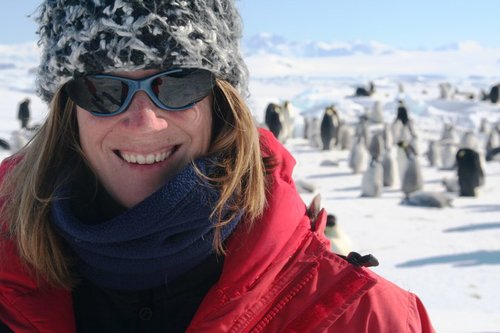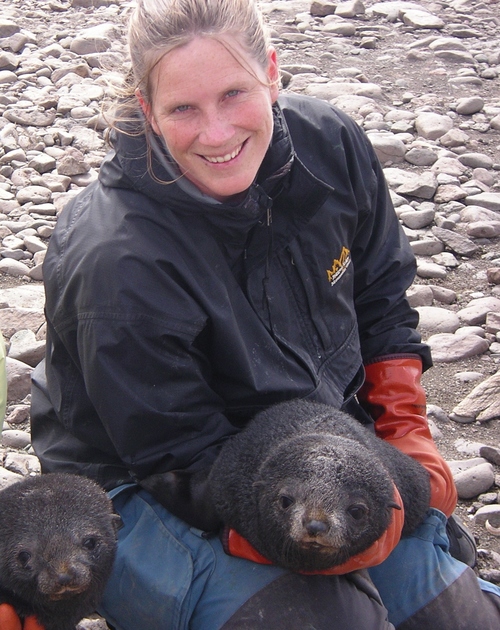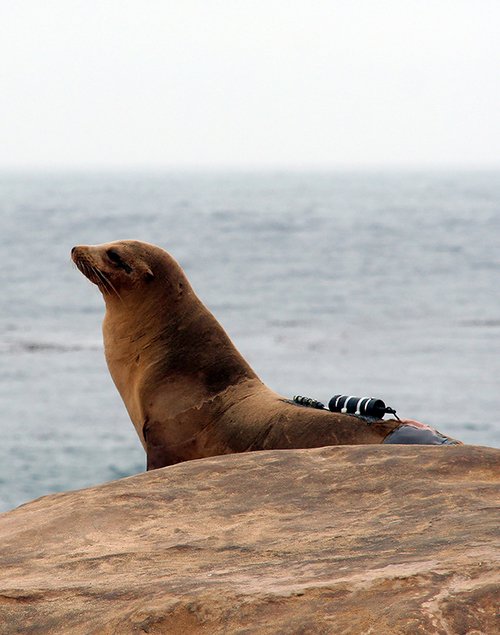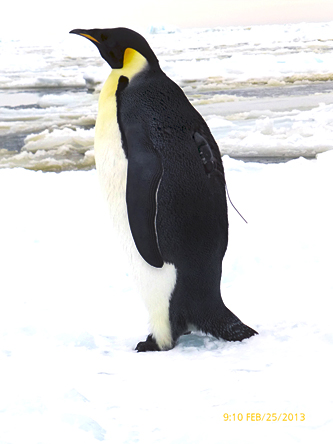
Next semester, Moss Landing Marine Laboratories will welcome a new faculty member: Dr. Birgitte I. McDonald. She is replacing Director Jim Harvey as the new head of the Vertebrate Ecology Lab. Gitte agreed to answer a few questions about herself in advance of her much-anticipated arrival!
Q: How did you first get interested in physiology and working with "air breather" marine vertebrates?
A: My interest in marine animals started at the age of 7 on a family trip to San Diego where the highlight of the trip was a trip to Sea World. This love of the ocean continued, leading me to study at UC Santa Cruz because of the opportunities for undergraduates to get hands-on experience through field classes and volunteering. As an undergraduate I volunteered at Long Marine Lab for the Pinniped Research in Cognition and Sensory Systems project, took many field courses, and volunteered for graduate students. Some of the most exciting field work I helped out with as an undergraduate was harbor seal captures with Jim Harvey and his students. The more I worked with marine mammals the more excited I got.
My love of physiology came a little later. When talking with Dan Crocker, my master thesis supervisor, about a potential masters project he suggested that it would be good if I expanded my “took kit” by adding a physiological component to my project since most of my previous experience involved animal behavior and ecology. I thought that was a great way to look at grad school – as an opportunity to learn new techniques and subjects - so I followed his suggestion. I am glad I did, because the more physiology I learned the more I loved it. I had always been amazed by the ability of marine mammals and birds to thrive in the marine environment and by studying physiology I was starting to understand how they were able to do it.

Q: Where are you now and what are you working on?
A: Currently I am a NSF postdoctoral fellow at Aarhus University in Denmark working with Peter Madsen and Tobias Wang studying the diving physiology and energetics of harbor porpoises. I have just finished a project studying the diving heart rate in captive porpoises using modified D3tags that can measure heart rate in addition to recording sound, acceleration and pressure. This has allowed me to look at how porpoises regulate their heart rate in relation to dive duration, activity and feeding behavior. We are planning on deploying these tags on wild porpoises as soon as the field tag is ready. I plan to maintain this collaboration after I start at Moss Landing so there may be opportunities for students to use this specialized tag to studying diving physiology and energetics in wild animals.

Q: What new areas of knowledge do you bring to the Vertebrate Ecology Lab, and MLML as a whole?
A: I bring my expertise in physiological ecology of breath-hold divers. One of many reasons I am excited for the position at Moss Landing Marine Laboratory is because of the potential collaborations with the faculty. My research focus on energetics and diving physiology complements the research conducted by the existing faculty, while my expertise will provide new areas of concentration.
Additionally I hope to continue to conduct research in the Antarctic. I am excited about the possibility of introducing students to research in polar environments.
Q: What makes you most excited about joining MLML?
A: There are so many reasons I am excited about joining MLML it is hard to pick the top reason. I am excited to establish a research program taking advantage of the close proximity of the marine vertebrates located along the Pacific Coast. This will allow me to combine my love of field work and teaching by developing courses that provide students with a strong background in the fundamentals, while giving them opportunities to get hands-on experience.

Q: Do you have any special skills outside of marine science that we might like to hear about?
A: I am not sure if it is a skill, but I enjoying figuring things out. If there is a problem or something is broken I think it is fun to try to fix it. It is amazing what you can do with the help of google. I can’t promise the outcome will be the most beautiful, but it will usually be functional. I have found this skill (or stubbornness) useful in the field.
Q: When will you be moving back to the United States?
A: I fly back to San Diego on December 30 and plan to move up to Capitola the first week in January.
We can't wait to start working with you!

